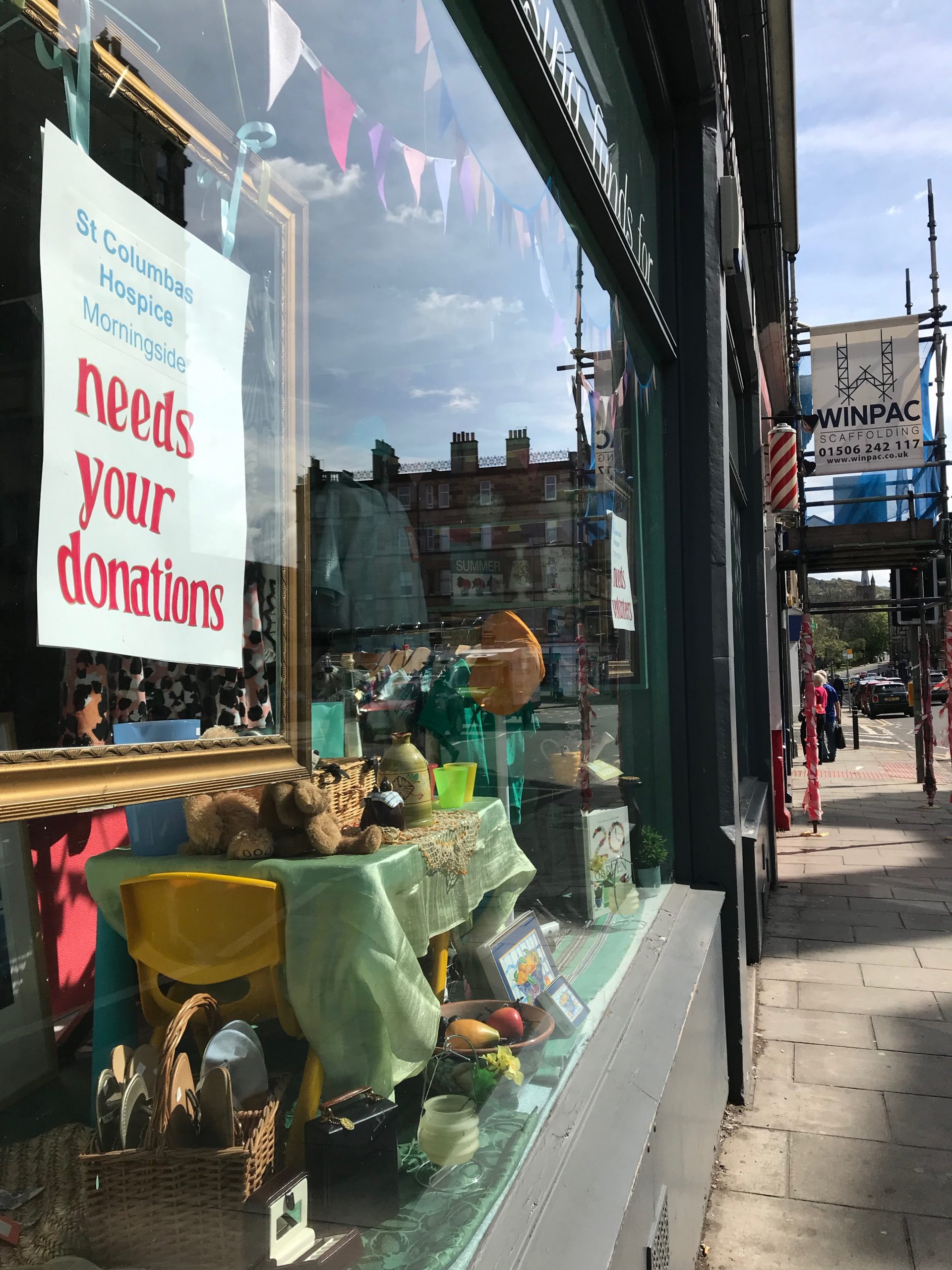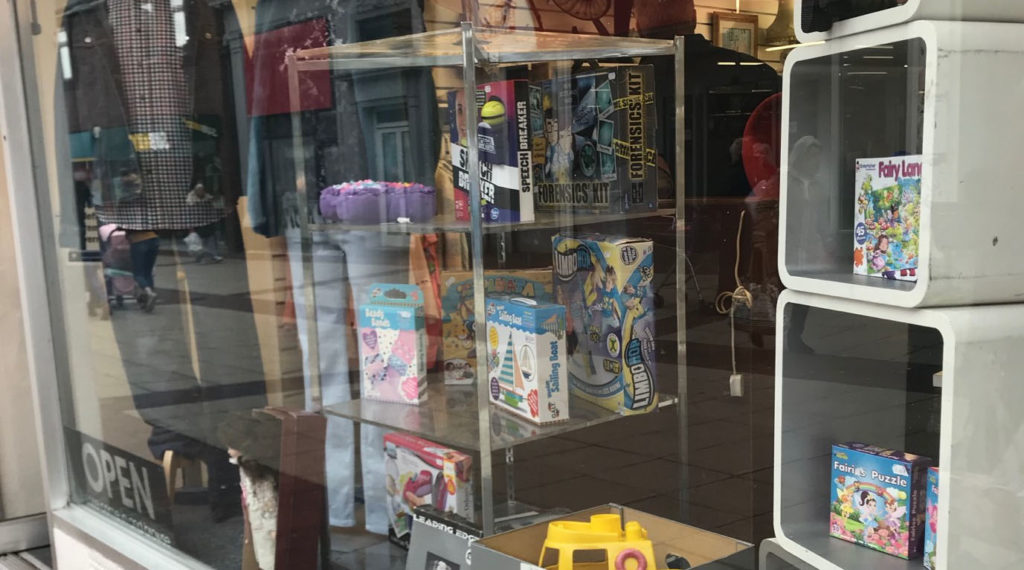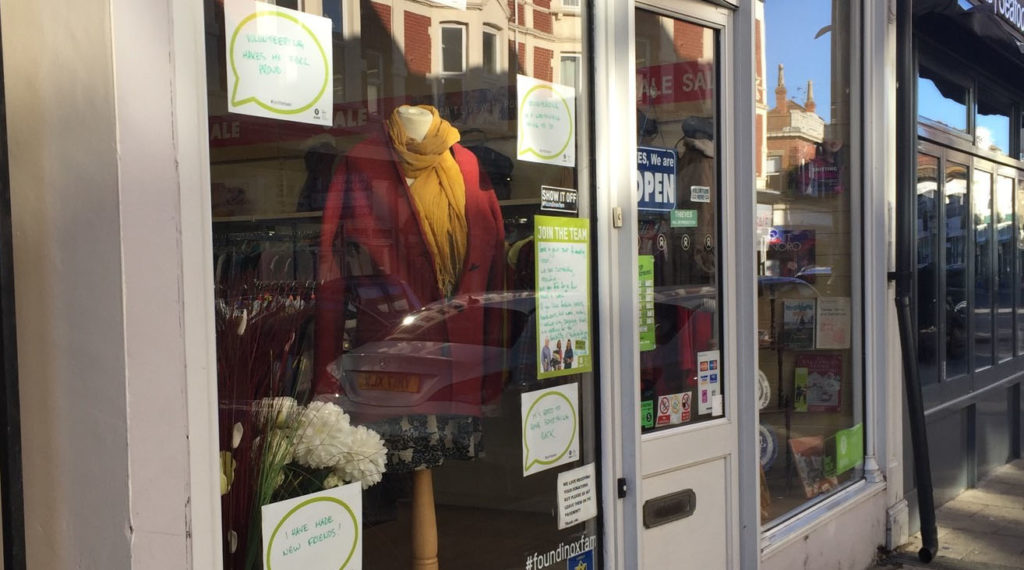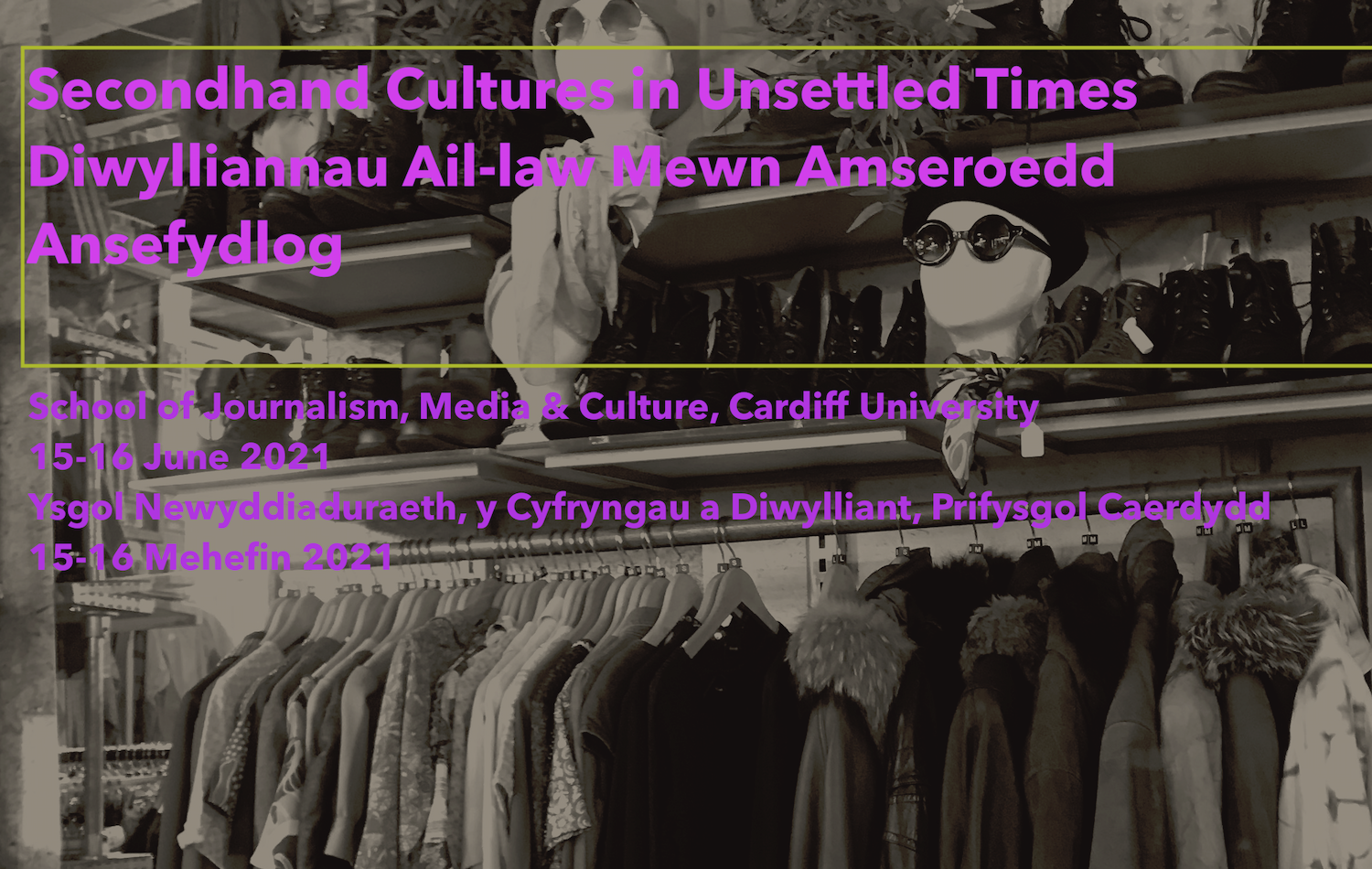Secondhand Cultures in Unsettled Times
Special Issue of JOMEC Journal
Due date for submissions: Monday 22 November 2021

Secondhand cultures and practices have expanded and transformed over recent decades, with profound social, political, and environmental implications. From reselling sites, swaps, charity shops, and thrift stores, to global waste streams, markets, and waste picking, secondhand worlds invite challenging questions: on value and waste, labour and equity, damage and repair, sustainability and design, ethics and politics, death and renewal, and intersecting areas of class, gender, race, and disability, as well as of method and approach. What’s more, secondhand economies have been unsettled by the global pandemic in ways that are not yet well understood.
Inspired by discussions that unfolded during a virtual symposium held in June 2021, called ‘Secondhand Cultures in Unsettled Times,’ we are inviting submissions to a special issue of JOMEC Journal on the same theme.
As interest in secondhand cultures and practices surges – from governments and businesses looking to capitalise on this ‘new’ market, as well as from makers, workers, shoppers and researchers – we are particularly interested in submissions that critically interrogate and/or creatively intervene in how we understand secondhand cultures and economies around the world.
Co-editors: Dr Jennifer Lynn Ayres (NYU and Parsons, The New School); Dr Triona Fitton (University of Kent); Dr Alida Payson (Cardiff University)
To discuss an idea, please get in touch with us @ paysonAB@cardiff.ac.uk
We welcome work from researchers and practitioners at all career stages.
JOMEC Journal offers the following guidelines for submissions, but please contact us if you have an alternative format in mind:
- Article (5–10k words)
- Interview or discussion (5–10k words)
- Book Review (1,500 words)
- Conference Report (2,000 words)
JOMEC Journal is an online, open-access journal from Cardiff University Press: https://jomec.cardiffuniversitypress.org/
Due date for submissions: Monday 22 November 2021
Publication date: planned for February/March 2022
More information about submissions can be found here: https://jomec.cardiffuniversitypress.org/about/submissions/
Please submit references in Harvard style for ease of editing. Our guide can be found here: https://xerte.cardiff.ac.uk/play_4069#harvard

Diwylliannau Ail-law ar Adegau Ansicr
Rhifyn Arbennig o Gyfnodolyn JOMEC
Dyddiad cau ar gyfer cyflwyniadau: Dydd Llun, 22 Tachwedd 2021
Mae diwylliannau ac arferion ail-law wedi ehangu a newid dros y degawdau diwethaf a chael effaith aruthrol ar gymdeithas, yr amgylchedd a’r byd gwleidyddol. O wefannau ailwerthu, cyfnewidiadau a siopau elusen ac ail-law i ffrydiau gwastraff byd-eang, marchnadoedd a digwyddiadau casglu gwastraff, mae bydoedd ail-law’n gwahodd cwestiynau heriol: ar werth a gwastraff, llafur a thegwch, difrod ac atgyweirio, cynaliadwyedd a dylunio, moeseg a gwleidyddiaeth, marwolaeth ac adnewyddu, meysydd croestoriadol dosbarth, rhyw, hil ac anabledd, yn ogystal â dulliau ac ymagwedd. Yn fwy na hynny, mae’r pandemig byd-eang wedi tarfu ar economïau ail-law mewn ffyrdd nad ydym yn eu deall yn llawn eto.
A ninnau wedi ein hysbrydoli gan drafodaethau a ddatblygodd yn ystod symposiwm rhithwir ym mis Mehefin 2021 o’r enw ‘Diwylliannau Ail-law ar Adegau Ansicr’, rydym yn gwahodd cyflwyniadau i rifyn arbennig o Gyfnodolyn JOMEC ar yr un thema.
Wrth i ddiddordeb mewn diwylliannau ac arferion ail-law gynyddu – ymhlith llywodraethau a busnesau sy’n ceisio manteisio ar y farchnad ‘newydd’ hon, yn ogystal â gwneuthurwyr, gweithwyr, siopwyr ac ymchwilwyr – mae gennym ddiddordeb arbennig mewn cyflwyniadau sy’n cwestiynu’n feirniadol sut rydym yn deall diwylliannau ac economïau ail-law ledled y byd a/neu’n ymyrryd mewn ffordd greadigol.
Cyd-olygyddion: Dr Jennifer Lynn Ayres (Prifysgol Efrog Newydd a Parsons, Yr Ysgol Newydd); Dr Triona Fitton (Prifysgol Caint); Dr Alida Payson (Prifysgol Caerdydd)
I drafod syniad, cysylltwch â ni drwy ebostio paidonAB@caerdydd.ac.uk
Rydym yn croesawu gwaith gan ymchwilwyr ac ymarferwyr ar unrhyw gam o’u gyrfa.
Mae Cyfnodolyn JOMEC yn cynnig y canllawiau canlynol ar gyfer cyflwyniadau, ond cysylltwch â ni os oes gennych fformat arall mewn golwg:
- Erthygl (rhwng 5,000 a 10,000 o eiriau)
- Cyfweliad neu drafodaeth (rhwng 5,000 a 10,000 o eiriau)
- Adolygiad Llyfr (1,500 o eiriau)
- Adroddiad Cynhadledd (2,000 o eiriau)
Cyfnodolyn mynediad agored ar-lein gan Wasg Prifysgol Caerdydd yw Cyfnodolyn JOMEC: https://jomec.cardiffuniversitypress.org/
Dyddiad cau ar gyfer cyflwyniadau: Dydd Llun, 22 Tachwedd 2021
Dyddiad cyhoeddi arfaethedig: Chwefror / Mawrth 2022
Mae rhagor o wybodaeth am gyflwyniadau i’w gweld yma: https://jomec.cardiffuniversitypress.org/about/submissions/
Sicrhewch eich bod yn defnyddio dull cyfeirnodi Harvard er mwyn hwyluso gwaith golygu. Gellir gweld ein canllawiau yma: https://xerte.cardiff.ac.uk/play_4069#harvard








